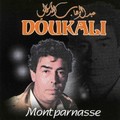In a career spanning 45 years, UB40 has performed over 1,200 concerts worldwide, recorded 20 studio albums, released 19 compilations, and sold over 100 million records. This year is marked by a world tour and a new album, UB45, released on April 19th. The album features some of the band's greatest hits, re-recorded with Matt Doyle, who replaced Duncan Campbell as UB40's lead singer in 2021.
This year, the English reggae and pop band brought their music to the Casablanca audience, performing at the Jazzablanca festival (June 6-8, 2024).
Opening the 17th edition of the festival on the Casa Anfa stage, the Birmingham-born band gave its first-ever concert in Morocco, uniting fans of all ages. Young and old alike sang along to UB40's timeless hits, including «Red Red Wine», «Cherry Oh Baby», «Tyler», «Homely Girl», «Kingston Town», «Food For Thought», and «I'll Be Your Baby Tonight», previously performed with Robert Palmer. «Can't Help Falling in Love with You» emerged as a particular highlight of the evening, leaving a lasting impression on both UB40 and the audience.
A reunion and a celebration of Africa
While this was a first for Morocco, it was also a reunion for UB40, who have already played numerous concerts across Africa. A founding member of the group since 1978, singer and bassist Earl Falconer told Yabiladi that the band had «played in many countries here (Africa), in Uganda, Kenya, Zimbabwe, Nigeria, post-apartheid South Africa and everywhere else in the world».
«We perform wherever people want us to be to entertain together, but Africa is undeniably a very special place», Falconer continued. «It's the cradle of humanity, where life began. We're happy to be here and delighted to meet our Moroccan fans».
 UB40 at the 2024 Jazzablanca festival. / Ph. Gwendydd Vaillié - Yabiladi
UB40 at the 2024 Jazzablanca festival. / Ph. Gwendydd Vaillié - Yabiladi
Celebrating their 45th anniversary in a symbolic way, UB40 kicked off their concert with «Here I Am», one of their legendary songs. This was followed by a powerful statement for freedom and peace: «Sing Our Own Song». Originally released in 1986, this single was an anti-apartheid anthem, incorporating the rallying cry of Nelson Mandela's supporters in South Africa, «Amandla Awethu» (power is ours). Performed this time by Matt Doyle, it remains a timeless work advocating collective action for liberation.
Another founding member, drummer James Brown, shared with Yabiladi that the song was indeed written in the context of the boycott against the apartheid regime. «We played it in front of hundreds of thousands of people, just after Nelson Mandela's release», Brown said. «We found ourselves rubbing shoulders with a part of history, and it's one of the most unforgettable experiences for us. We're lucky to be able to experience this».
Connecting across generations and continents
Returning to the intergenerational appeal of UB40's music, James Brown explained to Yabiladi, «UB40 seems to have fans all over the world. I guess that's why we've been around for 45 years».
«We're always finding a new place to sing to audiences we've never met before, and Morocco is one of those places», he added.
This global success aligns with the very spirit of reggae, UB40's core musical identity. Their music blends Jamaican and African influences with pop and British sounds, creating a sound that has been recognized as a world heritage since 2018.
 UB40 during the 2024 Jazzablanca festival. / Ph. Gwendydd Vaillie
UB40 during the 2024 Jazzablanca festival. / Ph. Gwendydd Vaillie
Regarding the global appeal of UB40's music, Earl Falconer told Yabiladi: «Many artists have contributed to the reggae scene around the world, making it a Jamaican music with a great history and global heritage. We're delighted to be part of that».
«Music is a very powerful medium», Falconer continued. «Everyone has favorite melodies or rhythms that take them back to certain memories, people, or places. Connecting with others through the music we love is something natural».
In this sense, James Brown believes that «everyone can recognize themselves in music, in their own way, because it has this power to transcend cultures, continents, countries and much more». «It may not change the world, but it makes people feel connected to each other», Brown concluded.





 chargement...
chargement...













